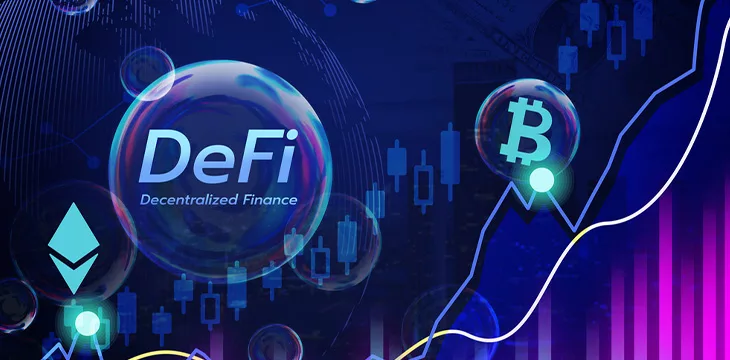|
Getting your Trinity Audio player ready...
|
The United States Commodity Futures Trading Commission (CFTC) released a report on the challenges faced by decentralized finance (DeFi), highlighting major concerns around the need for more accountability and clear lines of responsibility in the sector.
The report was authored by the CFTC’s Digital Assets and Blockchain Technology Subcommittee of the Technology Advisory Committee (TAC) and suggested that the benefits and risks of DeFi depend on the design and features of specific systems. A central concern of the report was a perceived lack of—”and some industry designs to avoid”—clear lines of responsibility and accountability.
“This report is the result of the hard work of the TAC Digital Assets and Blockchain subcommittee to study DeFi,” said CFTC Commissioner Christy Goldsmith Romero, sponsor of the TAC. “It is intended to help inform ongoing policy debates in the U.S. Congress, state legislatures, and regulators, including the CFTC. It provides a foundational understanding of DeFi. It finds that the benefits and risks of DeFi depend significantly on the design and features of specific DeFi systems.”
Romero stated “from the time that I arrived at the CFTC, I have played a steady drumbeat that we need to study emerging issues related to digital assets or we could risk harmful unintended consequences.”
The TAC voted on January 8 to submit the report to the CFTC, making it the first substantial report on DeFi by a government advisory committee.
The report also presented detailed recommendations to mitigate some of the risks the advisory committee found related to market integrity, financial stability, and illicit finance. Key suggestions included developing continuous data gathering, monitoring, information sharing, and regulatory partnerships; surveying the existing level of regulatory compliance and identifying regulatory gaps; and identifying the range of potential policy responses, such as disclosure, regulatory reporting, third-party auditing, entry restrictions, and resolution planning.
“I hope that this report can serve as a first step to facilitate a dialogue between policymakers and industry, particularly because DeFi remains at the center of illicit finance risks, cyber hacks, and theft,” said Romero, who also noted that “most DeFi systems are not completely centralized or decentralized, but instead operate on a spectrum.”
The idea that DeFi exists on a centralization spectrum and that current policy can account for this is not a new concept for the CFTC. In May 2023, CFTC Chair Rostin Behnam made it clear that decentralized digital asset exchanges would be regulated regardless of how they’re constituted.
“As much as the crypto conversation presents new and novel issues and questions about the underlying asset—whether to regulate it, how to regulate it—I do think … we have to use the same playbook that we’ve used in the past as we think about policy we construct for crypto,” said Benham.
This pledge was put into action in the Ooki DAO case.
The potential precedent of Ooki DAO
In September 2022, the CFTC sued the decentralized autonomous organization (DAO) Ooki DAO for violating the Bank Secrecy Act.
In its filing, the regulator pointed out how the founders had openly attempted to use the decentralized structure to avoid complying with regulators. To which the CTFC said, “DAOs are not immune from enforcement and may not violate the law with impunity.”
In June 2023, U.S. District Judge William H. Orrick ruled in favor of the CFTC, ordering Ooki DAO to shut down and pay a civil monetary penalty of $643,542.
The CFTC described it as a “sweeping victory” that proved DAOs can be held legally accountable, particularly as the lawsuit was the first time regulators had gone after a whole DAO, including all the token holders who didn’t actively participate in any illegal actions.
Victory for the CTFC represented a potentially precedent-setting decision for the future regulation of decentralized organizations and served as a warning to rogue DeFi that may have felt it was beyond the reach of the law.
Watch: Blockchain for banking and finance

 07-15-2025
07-15-2025 





